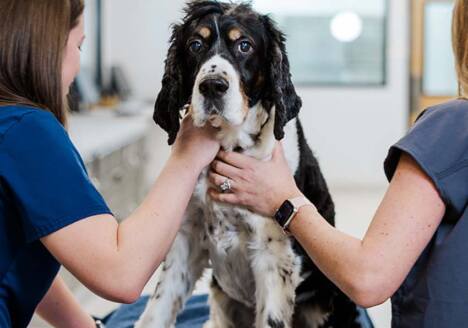Inflammatory Bowel Disease (IBD) is a common condition affecting young to middle-aged dogs and cats. While a definitive diagnosis can be complex, recognizing the signs and understanding the diagnostic process are crucial for effective management.
Recognizing the Symptoms:
IBD typically presents with one or more of the following symptoms:
- Chronic vomiting
- Chronic diarrhea
- Poor appetite
- Weight loss
It’s important to note that a pet doesn’t need to exhibit all of these symptoms to be considered for IBD.
Diagnosing IBD:
While it’s difficult to directly diagnose IBD in pets, a number of tests will help to rule out other serious, non-intestinal diseases.
- Blood work: To rule out other conditions like liver and kidney disease.
- Abdominal Ultrasound: This can reveal intestinal thickening, tumors, or pancreatitis, but doesn’t definitively diagnose IBD. VRCCO offers this advanced imaging as part of a full diagnostic workup.
- Intestinal Biopsy: This procedure involves an endoscopic biopsy of the intestine. This is an anesthetic procedure and may not be the first diagnostic step.
The Importance of Diet:
Diet may play a significant role in managing IBD for some patients. Just like with skin allergies, certain foods can trigger inflammation in the intestines. A food trial, using a strictly prescribed diet, is often recommended to identify potential food sensitivities. It’s crucial to avoid giving your pet any other food or treats during the trial, as this can compromise the results. Food trials typically yield results within two to four weeks.
Treatment and Management:
Treatment for IBD may include diet changes and/or medications.
Living with IBD:
While managing IBD can be challenging, many pets respond well to treatment. If your dog or cat is experiencing weight loss, vomiting, or persistent diarrhea, consult your veterinarian to rule out other potential causes. If IBD is suspected, a collaborative approach between you and your vet can help develop a management plan to improve your pet’s quality of life.


